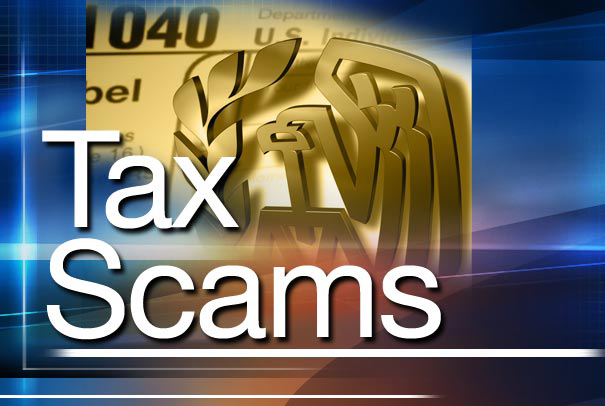Tax season has always been a tempting time for many unsavory people to try to scam others. The addition of online self-preparation and identity theft has only made the problem worse.
But there are some basic precautions that can help taxpayers avoid being taken advantage of, or of falling on the wrong side of the IRS by participating in improper filing practices.
To help Americans stay aware, the Internal Revenue Service and the National Association of Enrolled Agents are sharing advice and tips this tax season. EAs are tax professionals specially certified to prepare taxes and represent taxpayers before the IRS. Only EAs, CPAs and tax attorneys can do so.
Among the most common scams are email refund schemes and telephone impersonators. The IRS says that it will never email individuals or call them to initiate contact. Instead, the agency relies on traditional paper-based mail notifications if it has follow-up questions or needs more information to process a return. Email recipients should not open any attachments or click on any links contained in the message. Taxpayers receiving such an email can forward it to phishing@irs.gov so that the agency can investigate the scam.
In addition, the IRS continues to aggressively expand its efforts to protect and prevent refund fraud involving identity theft as well as work with federal, state and local officials to pursue the perpetrators of this fraud.
The IRS offers several suggestions for taxpayers to help protect themselves against scams and identity theft:
- Don’t carry your Social Security card or any documents that include your Social Security number (SSN) or Individual Taxpayer Identification Number (ITIN).
- Don’t give a business your SSN or ITIN just because they ask. Give it only when required.
- Protect your financial information.
- Check your credit report every 12 months.
- Secure personal information in your home.
- Protect your personal computers by using firewalls and anti-spam/virus software, updating security patches and changing passwords for Internet accounts.
- Don’t give personal information over the phone, through the mail or on the Internet unless you have initiated the contact and are sure of the recipient.
Taxpayers also should be very careful when choosing a tax preparer. While most preparers provide excellent service to their clients, a few unscrupulous return preparers file false and fraudulent tax returns and ultimately defraud their clients. It is important to know that even if someone else prepares your return, you are ultimately responsible for all the information on the tax return.
The NAEA added additional pointers, focusing on three key areas that fraudsters use:
Phony IRS emails. In a “phishing” scam, an official-looking email shows an IRS logo that lures the consumer to a website that requests personal and financial information, such as a Social Security number, bank account, or credit card numbers. In truth, the IRS does not send out unsolicited e-mails, and does not use email to ask for detailed personal or financial information such as PIN numbers, passwords or similar secret access information for credit cards or bank accounts. The IRS does not initiate contact with taxpayer via email.
Refund scam. In a refund scam, a bogus e-mail tells the recipient that he or she is eligible to receive a federal tax refund for a given amount (often $63.80) and sends the recipient to a website to complete a form to submit the tax refund request. The form then asks for personal and financial information. In fact, the IRS does not notify taxpayers of refunds via e-mail. And, taxpayers do not have to complete a special form or provide detailed financial information to obtain a refund. Refunds are based on information reported on the tax return.
Antifraud Commission scam. In this case, the scammer sends an e-mail stating the IRS “Antifraud Commission” has found that someone tried to pay their taxes through the Electronic Federal Tax Payment System, or EFTPS, using the e-mail recipient’s credit card and, as a result, some of the recipient’s money was lost and the remaining funds were blocked. The e-mail includes a link that sends the recipient to a website where he or she is directed to enter personal and financial information in order to unblock their funds. Don’t take the bait! The IRS does not have an Antifraud Commission and does not have the authority to freeze a taxpayer’s credit card or bank account because of potential theft or fraud perpetrated against the taxpayer, and does not use e-mail to initiate contact with taxpayers.
In addition to these tips and advice on protecting personal information, the best way to ensure your taxes are properly and legally filed with the IRS is to use a qualified tax professional, such as an EA or CPA.
Thanks for reading CPA Practice Advisor!
Subscribe Already registered? Log In
Need more information? Read the FAQs
Tags: Income Taxes, IRS, Taxes




